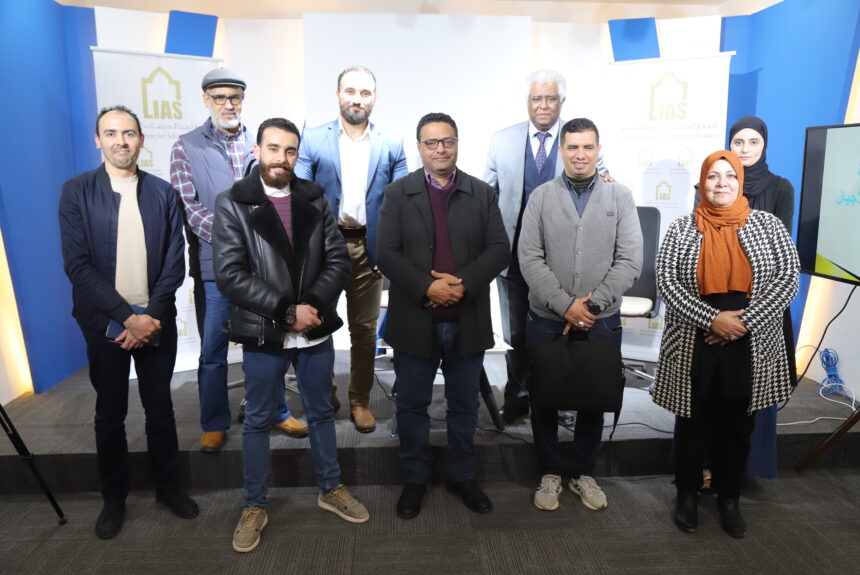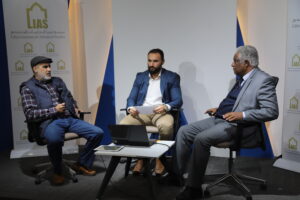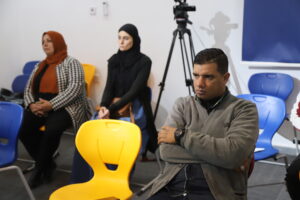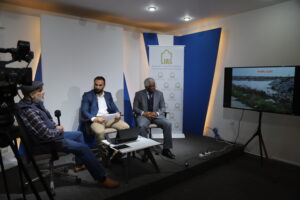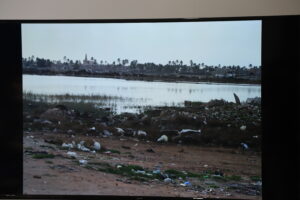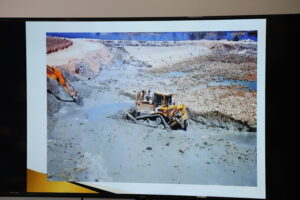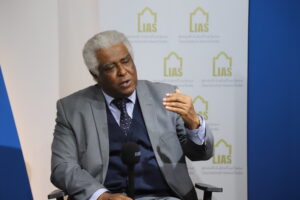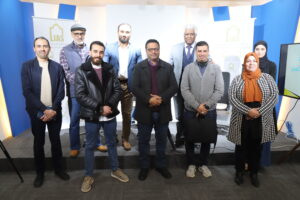Today, Monday, February 7, 2022, the Libya Institute for Advanced Studies organized a dialogue session entitled: Wetlands between problems and solutions.
The session was presented by Professor Walid Mohammed Al-Hilali, an environmental activist and specialist in the field of science and engineering.
Hosted by Prof. Dr. Yaqoub Muhammad Al-Barasi, a faculty member at the Faculty of Science, University of Benghazi, and Head of the Department of Science and Environmental Engineering at the Libyan Academy, also hosted Dr. Menem Wafi Barani. Faculty member at the Faculty of Science, University of Benghazi.
Dr. Menem spoke about the importance of wetlands, whether salt or fresh water, and that they do not receive much attention and have become a place for garbage. The most important wetlands are coastal areas, and their importance lies in preserving the environment of the region. He also spoke about the Ramsar Convention in Iran, and that it has begun It went into effect in 1975, and the attempt to fill and change these lands is considered a very big mistake, and this behavior must be stopped.
The intervention of Prof. Dr. Yacoub Al-Barassi talked about the importance of wetlands in absorbing carbon dioxide, and that they have ancient historical importance in the country’s environmental and economic system, and are considered one of the sources of income in other countries, and that wetland plants are used in several industries.
He warned against playing in wetlands, attacking them, and vandalizing them, as it changes the nature of the environment in the region and affects it negatively, including the loss of a number of birds due to attacks, such as the flamingo, and that wetlands are a major model of ecosystems and one of the most important factors of life.
The attendees expressed distinguished discussions and interventions, in which they pointed out the most important problems in this matter, the most important of which are: lack of awareness, lack of awareness and information, and that work should be done to preserve wetlands through the following steps:
- Issuing a special law by legislative authorities to preserve these lands and their importance to the Libyan environment.
- Activating international agreements in particular, and cooperating with countries interested in these areas.
- The need to seize control of wetlands by municipalities and protect them.
- Work to raise community awareness in all media about the importance of wetlands.
- Intensifying the efforts of civil society organizations in raising awareness about the environmental system and organizing seminars and sessions about it.


